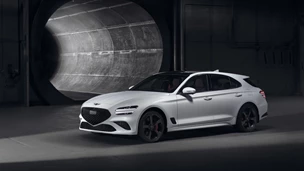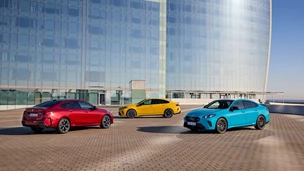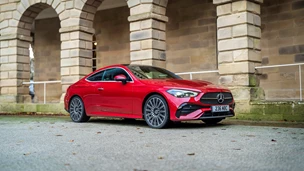The Seat Leon started its history in 2000, and evolved into a very popular car in the UK, despite being marred as one of the ‘cheap-brand’ cars. Seat are slowly shaking this reputation, and the new Leon, introduced in 2005, will become an integral part of this in the future: It is a very strong contribution. The review carThe vehicle we reviewed was a Seat Leon 1.4 16v S 5-door. The car came with a 75 horsepower fuel-injected 1390cc engine and a 5-speed manual transmission. Driving the 2005 Seat LeonLike its cars, Spanish Seat has a long history, beginning as a company building cars under licenses from Fiat, and then evolving into a automotive manufacturer in their own right. Since 1990, Volkswagen owns Seat – whichThe Leon is occasionally described as the Poor Man’s Golf. To us, it appears more like a smart man’s Golf. Prices start at about the same level as the Golf, but equipment levels are better. Build quality and handling is similar to the Golf, too.Driving the Leon is a quite an experience: The marketing guys at Seat love calling it all-sorts of pet-names, but to us, it seems like a mixture between a MPV and a sporty family car. And so it handles like an over-sized sportscar. Or perhaps a MPV with some grunt.The rev-happy engines and the stiffer-than-normal suspension result in a car that appears back-to-its-roots of the sporty Volkswagen Golf models of times gone by. As such, the weakest member of the Leon line-up has a 102 horsepower 1.6 litre engine – the vehicle we tested. Despite being the smallet, it offers enough power to propel the Leon at rates that can only be described as ‘fun’. The bigger engines are the same, but more.With engines sourced from Volkswagen – which means reliability and tried-and-tested power – but with Seat-developed suspension and engine management, the Leon becomes a driving machine which strikes a good balance between fun and comfort.Safety-wise the Leon has a very extensive package indeed. ABS brakes and traction control across the whole model line-up, and the up-market trim levels offer electronic stability control as well. All cars come with a full set of 6 airbags, and another 2 for the rear-side passengers are available of options.An additional safety feature introduced on this new Leon is something Seat calls a Driver Steering Recommendation: When the car notices you are about to skid, the steering wheel gives a small, but notable nudge. The first time you feel it, it’s scary. After that, you realise it’s just the Leon’s way of telling you it loves you, and that it would prefer to have you arrive in one piece.Behind the wheel, there is plenty of space – the seat adjusts easily, and the steering wheel offers height (up-and-down) and rake (in-and-out) adjustment: Perfect for drivers of all sizes and lengths. Instruments and controls are largely where you would expect them, and when not testing out the Leon’s large-sportscar claims, it actually offers a rather relaxed ride.On the motorway, the Leon is capable, but a little on the boring side: the 1.6 litre engine is powerful enough to do its job, it scores low on the thrill-o-meter. The suspension is a little on the hard side for comfortable long-distance rides. Design and usabilityThe Leon embraces the auto emocion slogan with passion – the aggressive stance, the sports-inspired interior and the good performance all try to ram home the marketers’ point: You buy a Leon with the heart.But if you are looking at it with your brain, it makes sense, too. 4 fully-grown adults fit inside without too much of a push, and the boot is of reasonable size (although the rear lip is on the high side, which means that it holds more ‘loose stuff’, but can be more difficult to load) Who is it for?The Leon should be on the to-be-considered list for anyone who is shopping for a car in this segment. The VW Golf is a classier, more conservative choice from what is rapidly becoming a prestige brand, but the Seat Leon isn’t far behind – and looks cooler. So, should you buy one?Yeah, why not. The pricing is very competitive compared to similar competitors, the quality is excellent, and the engines are good. And did we mention it looks good? Which model would we choose?If you are looking for a groovy car, it makes sense to go for one of the petrol models – they are all powerful, well-balanced units. The diesels are lovely too, though, and will probably be cheaper to run in the long term – especially if you do a lot of longer-distance cruising.




